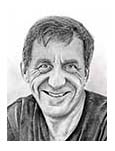House boys

House boys were then and still now, very common in Kenya. They were employed to cook, wash up, clean the house and run small errands. I found it very difficult to explain this to my friends when aged thirteen I went to school in Brighton, as they immediately assumed that we were very rich and that house boys were badly treated servants, much like slaves. I have no doubt that in early years in colonial East Africa it is quite likely that some house boys were treated badly and expected to be subservient to their white masters. This was far from the case when we lived in Kenya. The house boys were earning a valuable living, much of which was sent back to their families who lived up country. Their wives were often employed as ‘Ayah’s to look after the children, a tradition that has its roots in India.
Along with many other families we became very attached to our house boys, along with their wives and families. It was hard not to be sympathetic and help them out at difficult times in their lives when they lived in such close proximity to us. From time to time my father would pay for medicine or doctors fees for one member or other of a house boys family. I became very attached to some of them, particularly Philip who we employed in Nairobi. Whilst he was very frustrating at times for my parents, he and fellow house boys could inadvertently provide an endless supply of amusing incidents as they grappled with the cultural differences that the ‘Mazungu’s’ (whites) created. I remember when Philip was introduced to a washing machine. He rolled all the clothes into a sheet, which he tied in a tight knot before putting the bundle in the washing machine. The weight of the bundle being thrown round and round in the cylinder didn’t do the machine any good and of course nothing got washed! Donna remembers a house girl in Malaysia whose name was Millie. Her specialty was drying out tea bags on the washing line and reusing them!
There were a number of other jobs that local Africans were employed for. In the early 60s my father’s company employed someone to go around to all the employees houses and clean their toilets. On one visit to our house he told my mother that we had run out of toilet cleaner. He had diligently copied the name of the toilet cleaner, letter by letter on to a piece of paper to show her. The paper said “Please replace the cap”!
On another occasion when we lived in Nairobi, we had a driver. His name was Raphael, he was charming and polite with a slightly disconcerting habit whilst driving of lifting his left elbow to see what gear he was in. One day he was asked to go to Nairobi council’s office and obtain a map of Maralal. Maralal is located in the most northern part of Kenya. As the crow flies, this is a distance of 170 miles. A conservative estimate of the distance along the pot holed, dirt road is around 250 miles. After about eight hours, my father got a long distance phone call from the District Commissioners office in Maralal saying Raphael was there asking for a map and some petrol money back to Nairobi!

You must be logged in to post a comment.